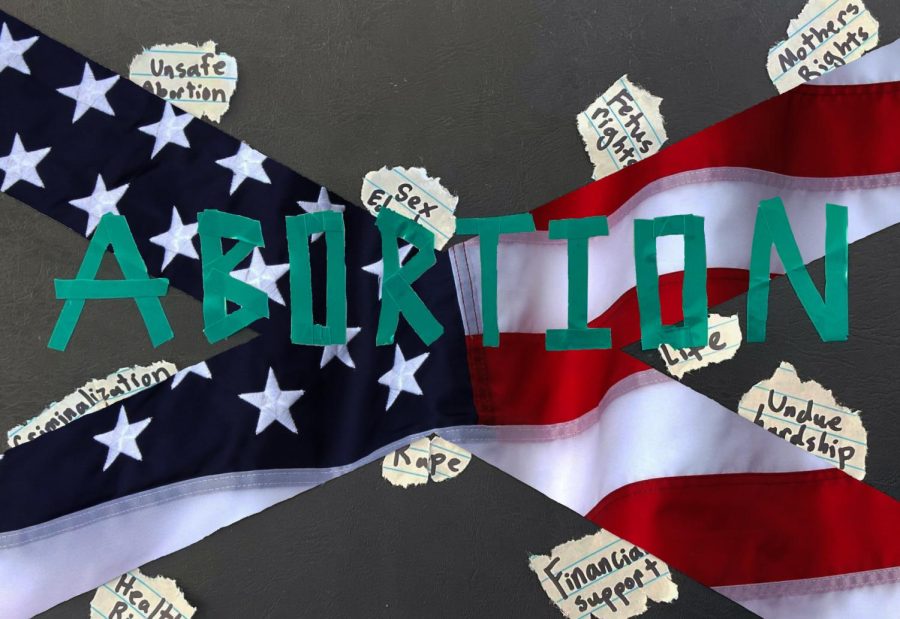In the U.S., decriminalizing abortion has been a reference point for the progressiveness of American society for the left. However, the recognition that “the Constitution of the United States protects a pregnant woman’s liberty to choose to have an abortion without excessive government restriction” didn’t prevent the creation of obstacles for poorer and marginalized people’s access to abortion. The reason why can be traced back to an unexpected starting point.
Pioneer mentality significantly shaped the American character. Immigrating to the U.S. as a colonist already filtered the type of person in the U.S. to opportunists who took risks. The opportunist thinking was further promoted through the incentive of pride and land for those who chose to travel into the unknown. The ability to take open land led to the promotion of quick thinking, aggressive, and flexible men. It idolized people who could take what they wanted and get away with it at a moment’s notice. The U.S. has incentivized this expansive opportunist way of thinking that contributed to the popularity and fittingness of capitalism in American culture.
The history of pioneer thinking and its impact on capitalism made the U.S. operate under a “get to the point” and “how to do this” mindset while focusing less on the complexity of why; making the U.S. an application-first culture.
Application-first cultures like the U.S. are defined in the way arguments begin with the attempt to instill a belief in something and then an explanation of how it should be implemented. In contrast, principle-first cultures like Germany are defined by laying a foundation for the thought process and the nuance behind an argument.
The effects of these differences in policy marketing and implementation are extreme. German policy is marketed from a place of complexity and then implemented in the way it is presented. The German abortion conversation and laws reflect the spectrum of thinking behind abortion.
In Germany, abortion is legal for the first trimester, and the government will pay for it if financial stability is the issue. At the same time, a fetus is recognized as living and protected by the German government from conception. The government acknowledges the duality and complexity behind this policy; leading to a constant and productive debate over it.
The U.S. conversation around abortion can get caught up in many different places; starting with whether or not a fetus should be considered living with rights. The productivity in conversation is limited due to the seemingly polar opposites of pro-choice and pro-life thought, which eliminates the possibility of duality and compromise in the marketing of abortion policy.
The American style of persuasion isn’t the only aspect of its culture that puts limits on the abortion discussion.
From its conception, the U.S. has been a culture of immigrants and relative racial diversity. Problems of ineffective communication quickly arose in this culture as British communication was different from Welsh communication and Welsh was different from Irish communication etc. Rather than exploring these cultural differences in order to continue tailoring speech to situations; the U.S. became a place where everyone could communicate no matter the cultural difference if they were willing to assimilate their speech into a straightforward style of communication that could afford to lack cultural subtext; making the U.S. a low-context culture.
Low-context cultures in their conversation styles are defined in meaning what they say. Innate issues don’t arise from this, meaning what one says does not create obstacles for the German conversation around abortion, as Germany is also a low-context culture. However, the addition of application-first thought makes meaning of what one says an issue.
American right-wing politics manipulates its audience based on the simpleness of romanticizing ignorance under the name of innocence. In a low-context culture, the lack of room for subtext makes romanticizing ignorance in conversation have particularly negative impacts.
Similar to the “don’t say gay” bill in Florida, the overturning of Roe v Wade operates under the idea that the access to learning about things that complicate the world is what makes those complications exist. If sex is discussed as something shameful and unsafe, it won’t happen. If the existence of gay people isn’t discussed, it won’t happen. If the option of abortion isn’t legal, it won’t happen.
Believing in a world of romanticized ignorance is presented easily through a low-context culture, but it is made convenient for an application-first culture. At face value, it sounds nice to not worry about abortion, especially when operating under the belief that a fetus has rights and is every bit a person.
American studies and polling questions surrounding abortion exemplify issues with the application-first and low-context combination. Some oversimplify American viewpoints, and others with differently worded and more complex questions that spell out scenarios have the ability to change an individual’s responses on abortion.
Voting for a republican or democratic candidate every four years doesn’t come with a certain view on the rights of a fetus and what that means for legislation; many republicans change their stance on abortion implementation based on question phrasing and the context of the pregnancy.
These studies are often cited by politicians and used in the marketing of policy; making the reasons for legal abortion take a back seat to the religious and political connotations with abortion.
Moving forward, the necessity of incorporating multiple facets of the human experience and recognizing that duality can occur in conversation will become apparent in the success of abortion policy and the well-being of all U.S. citizens.
Application-first and low-context aspects of the U.S. are what made the nation a success to the rest of the world, and although recognizing why didn’t help the pioneers, saving lives by recognizing why things happen should become a priority. Reconciling with why we are the way we are. Being willing to fully realize why this conversation is so hard. Recognizing why without judgment is the start to progress that not only can be referenced, but supported in a tangible way.




























